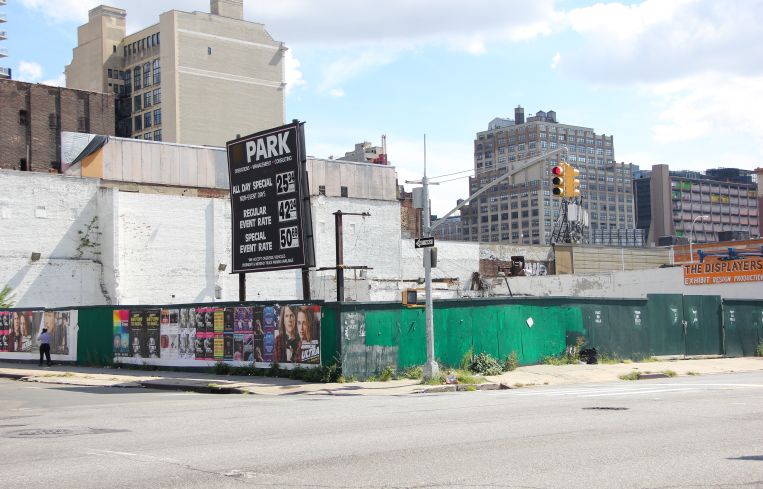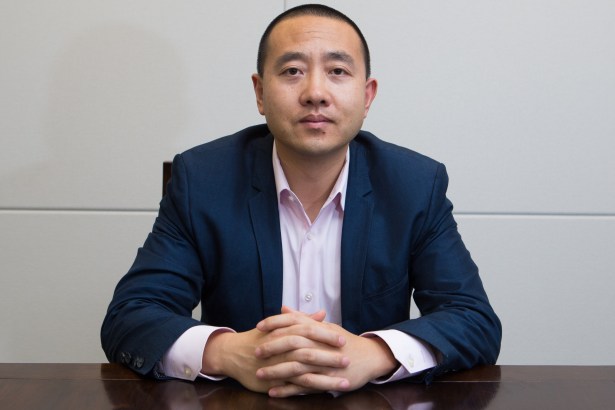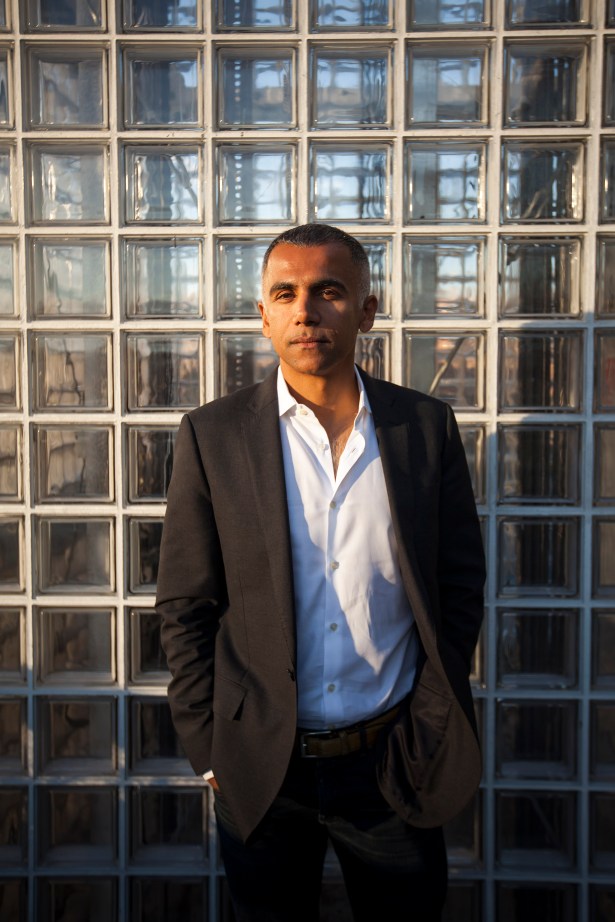The $600M Hudson Rise Development Becomes a Legal Nightmare
By Danielle Balbi September 9, 2015 10:37 am
reprints
“This deal is not going to be here forever,” Shang Dai, chief executive officer of Kuafu Properties, told his partner, Zengliang (Denis) Shan, over the phone back in the summer of 2013. “People are going to compete very fiercely on this,” he said.
Mr. Shan was about to board a plane to China when he received Mr. Dai’s call, urging him to look over the details and make a quick decision on whether or not to partake in the development opportunity at Hudson Yards, one of the largest neighborhood development projects New York City has ever seen. Mr. Shan spent his flight looking over the details of the opportunity and later called his partner when he landed to accept, Mr. Dai recalled in a July sit-down interview with Commercial Observer (before mediation rules prohibited press contact).
The development at hand would soon be known as Hudson Rise, a 320,000-square-foot hotel and condominium project, located on 11th Avenue between 37th and 38th Streets, with an estimated sell-out value of $600 million. The duo teamed up with Siras Development and BlackHouse Development, two other New York-based development firms to tackle the project. In June 2014, an affiliate of the partnership received a $60.9 million loan from UBS to finance the land acquisition and pre-development phases.
Today, Hudson Rise has become one of the most talked about developments in the city—but not in the context of its progress. A soured joint venture and its subsequent lawsuits left the plot of land on 11th Avenue vacant, court dockets full and news outlets further antagonizing tensions.
After Sean Ludwick, BlackHouse’s principal, engaged in “problematic behavior,” the firm became a silent partner in late 2014. Mr. Ludwick’s behavior mushroomed into a full blown criminal matter in Sag Harbor, N.Y., when he was accused of drunkenly crashing his Porsche and killing his passenger, Paul Hansen, on Aug. 30, police records show.
A few months after BlackHouse became a silent partner, Kuafu filed to dissolve its partnership with Siras (to no avail) after which Siras filed a lawsuit against Kuafu claiming that the defendant’s action was unlawful and damaging to the development. In April, an affiliate of Kuafu purchased the original acquisition loan and filed to foreclose on it on July 10, 2015. Both parties entered into mediation in late July.
“Here you have a really nasty fight between the partners and a rising real estate market,” Chris Delson, a partner in the real estate group at Morrison & Foerster who represents lenders in construction deals, told Commercial Observer. “If you see this, you usually see it in a downturn, where maybe the property is not worth what the debt is or where the investors are going to take a loss. Here, you have this big fight when the property is much more valuable than when it was initially purchased.”
DEADLOCKED FROM THE GET-GO
A BlackHouse executive told Mr. Dai about the development opportunity the same day that he called Mr. Shan. “The land base was very low and I knew the location would be booming,” Mr. Dai recalled. “Related and all of these other big players are working in the area and the government is in favor of the development of the neighborhood. There was no way this project would go underwater.”

Kuafu saw the potential value and was working with a limited timeframe. The firm put a deposit down within a month, and formally met with BlackHouse the same day. “That is how we came into our first marriage—in a rush,” Mr. Dai said.
The joint venture formed a partnership called Reedrock Kuafu Development Company LLC, with Kuafu holding a 50 percent stake and Siras and BlackHouse holding the other half.
Nearly one year later, on June 26, 2014, UBS provided the $60.9 million loan to Bifrost Land LLC, an affiliate of the joint venture, comprised of five members: Kuafu’s Mr. Dai, Mr. Shan and Qiling Yuan, and Siras’ managing partners Ashwin Verma and Saif Sumaida. Of the total loan, $44.5 million was drawn upon closing for the purchase of the property and the remaining $16.5 million was set aside for the purchase of the property’s air rights, according to an affidavit filed by Mr. Verma on May 15, 2015.
While the new development team would split responsibilities—Kuafu handling the financing and Siras handling the development—Kuafu’s voting power accounted for 60 percent, and Siras’ the remaining 40 percent. The parties’ joint venture agreement required approval from 75 percent of Reedrock’s managing members before any decisions regarding the development could be made.
“This joint venture agreement is a bit unusual in that all decisions need to be approved by 75 percent of the managers and the fact that there is no mechanism to break a deadlock,” Mr. Delson said.
“We usually see dispute resolution mechanisms, such as arbitration and buy-sell clauses, in joint venture agreements. In the Apthorp deal where we represented the lender, the joint venture agreement even had a provision that disputes would be decided by a rabbinical court,” he noted. “In the present case, the lack of any mechanism to break a deadlock and the parties’ apparent animosity towards each other makes for a very difficult road ahead.”
PARTNER TROUBLES
Over the next year, from the summer of 2014 to the summer of 2015, the partnership would begin to implode.
The UBS loan held a maturity date of July 9, 2015 and two consecutive six-month extension options were available given that certain demolition and construction milestones were met. With Siras responsible for the development aspect of Hudson Rise, they hired construction firm A J Labelle & Partners to begin work on the site.
On the financing side, Reedrock raised a total $96 million for the project. This included the UBS loan, a $7.5 million investment from Siras, a $7.5 million investment from Kuafu, and a $20.1 million investment from Kuafu on behalf of minority investors.
Kuafu would eventually decline to provide further funds to continue the project because of the company’s fiduciary duties to its investors. The firm felt Siras had mismanaged the project—like failing to file demolition permits on time—making it impossible to receive an extension on the loan, and violated the joint venture agreement, court records show. Eventually, A J LaBelle & Partners would file a mechanics lien for unpaid work on March 18 for $139,000.
Over the past year and a half, Mr. Ludwick of BlackHouse has faced a number of criminal charges that have only become more elaborate since legal proceedings began in early 2014. Before Mr. Ludwick was reportedly arrested following the drunk driving accident that left his passenger dead in late August, he admitted to assault and battery after striking his girlfriend earlier this year. Prior to that, he appeared in court last year after reportedly sneaking into an ex-girlfriend’s apartment and vandalizing her artwork with lewd drawings.
In addition to Mr. Ludwick’s personal dramas, he violated his agreement with Kuafu and Siras—both before and after the partnership was granted the loan—by entering a fee agreement with two brokers and continually issuing press statements without Reedrock’s consent.
“As a result of Mr. Ludwick’s behavior, UBS required that Mr. Ludwick satisfy the so-called Ludwick Conditions as conditions precedent to (and continuing through the loan term for) Mr. Ludiwck’s appointment as Manager of the Company,” Mr. Dai stated in his February 2015 petition to dissolve the partnership. “Pursuant to the terms of the Loan Agreement, as these conditions could not be satisfied, Sean Ludwick has not, and cannot, become a Manager of the Company.”
KUAFU SAYS ENOUGH, SIRAS SUES
On Feb.27, Kuafu filed a petition with the Supreme Court of the State of New York to dissolve the partnership. Janice Mac Avoy, co-head of Fried Frank’s real estate litigation practice and Kuafu’s legal counsel, would later outline the firm’s grievances with Siras in a counterclaim in June.

In her counterclaim, Ms. Mac Avoy detailed Siras’ alleged violations, stating that in September 2014, the firm entered into an exclusive sales agreement with Urban Compass to sell hotel and residential units without 75 percent approval from Reedrock or UBS. Additionally, Ms. Mac Avoy explained that Siras failed to select a hotel brand, which was crucial to the project, failed to seek approval from Kuafu for changes to the architectural design, and failed to obtain necessary permits to begin the demolition work required for a loan extension.
Kuafu’s petition to dissolve the partnership was denied because it did not have 75 percent managing member approval, and because of the managing party’s status as a limited liability company, the suit would have to be filed in Delaware.
On March 19, Siras filed a complaint against Kuafu, alleging “a brazen scheme by Activity Kuafu Hudson Yards LLC and its principals, Shang Dai and Zengliang Shan, to unlawfully wrest control of the highly successful real estate venture known as Hudson Rise from Plaintiff Siras Development LLC.”
The March complaint filed by Siras’ legal representative David Berger of Allegart Berger & Vogel stated that Kuafu breached its contract and fiduciary duty with Siras, and that Siras and the project were “damaged in an amount not less than $50 million.”
In Mr. Verma’s later affidavit he explained that Kuafu failed to provide ongoing financing, which resulted in the $139,000 mechanics lien, and that if Kuafu’s affiliate, 462-470 Eleventh Avenue LLC, declared Bifrost in default on the UBS loan or exercise any lender default remedies, “it would cause irreparable harm to Siras,” by damaging both its reputation and credit.
FORECLOSING

News outlets continually reported the partnership’s difficulties and Hudson Rise became a moniker for the lawsuit as opposed to the development project. By April, loan-to-own investors approached UBS to purchase the loan, a spokesman for Kuafu told Commercial Observer in August.
“We heard from sources that investors were approaching the lender to buy the note,” the spokesman said. “Kuafu immediately approached UBS to purchase the note. Once we did, we sent notice to Siras saying that they had every right to join us in the note purchase. They declined.”
On April 1, Kuafu’s counsel sent a letter to Siras “informing Siras that Kuafu was considering purchasing the UBS Loan, and if it did so, would offer Siras an opportunity to participate,” according to Ms. Mac Avoy’s counterclaim.
One week later, an affiliate of Kuafu, 462-470 Eleventh Avenue LLC, purchased the loan for $46.7 million, according to Mr. Verma’s affidavit.
In his affidavit, Mr. Verma stated that Mr. Dai sent Siras and Mr. Ludwick a letter on April 9, offering the opportunity to “jointly or severally participate on an economic basis in the ownership of the UBS loan,” and if interested to respond by May 1.
The offer, Mr. Verma continued, was a “sham.”
“Based on the price Dai claims 462-470 paid to UBS, Siras’ pro rate share would have cost over $15.5 million,” Mr. Verma said. “Siras had no way to come up with that amount of money by May 1 and Dai and Kuafu knew it—especially given that it was Kuafu’s (and not Siras’) contractual obligation to be ‘primarily responsible’ for financing—nor did Dai’s proposal that he and Shan would control the UBS Loan reflect the ownership structure of the Project, which provided Siras with veto rights over all decisions.”
On July 10, the day after the loan matured, Kuafu’s affiliate entity filed a foreclosure action on the loan.
“Foreclosure takes a year and a half. Even though it’s a slow process, it will put pressure on the other member of the LLC,” real estate attorney and Commercial Observer columnist Joshua Stein said. “As a practical matter, it will probably result in one member buying the other out.”
“What is more common is a borrower group getting together and buying a mortgage on their property at a discount,” Mr. Stein explained. “This does not happen all that often, although we did see it a bit during the financial crisis.”
THE NEXT STEPS
Kuafu Properties and Siras Development entered into mediation on July 30, before Eugene Farber, a mediator from the New York-based law firm Farber, Pappalardo & Carbonari.
Siras released a press release on Aug. 12, stating: “‘This was an old-fashioned squeeze-out play,’ Ashwin Verma, Managing Partner of Siras, said of Kuafu’s unprecedented conduct. ‘But Siras discovered this opportunity, and we will remain its lead developers. We are now pleased,’ Verma added, ‘that Kuafu has agreed to try and resolve this dispute amicably through mediation.’ ”
During the mediation session, Kuafu offered to buy out Siras, putting $10 million on the table—$5 million for each of Siras’ managing members. Mr. Dai and his partners were also willing to be bought out by Siras. In order to buy out Kuafu’s three managing members, Siras would have needed to pay $15 million, several sources confirmed to Commercial Observer on the condition of anonymity.
However, the parties could not come to a buy-out agreement. Just two months prior to mediation, Mr. Ashwin, claimed in his affidavit that Siras did not have the $15.5 million to partake in the purchase of the loan from UBS, nor did it have any means of coming up with those funds on such short notice.
The fate of the development Hudson Rise remains uncertain. A foreclosure could be damaging to the project itself, and any progress is stymied by the 75 percent majority vote needed to make decisions.
“The foreclosure takes what was a really bad partnership dispute and puts it on steroids,” Mr. Delson said.
“You already had a dispute at the joint venture level, and it looks like under the partnership agreement they are at a stalemate because everything has to be done with consent of 75 percent of the managers,” he added. “No one side can reach that 75 percent, so essentially nothing can happen, which includes what happens with the foreclosure.”
If a majority consensus agrees to a foreclosure, or if one of the parties is bought out and the new managing party decides to foreclose, another year and a half would be tacked on until the loan and respective property could be sold, Mr. Delson said, noting that the additional time could be of concern, since the development team could “miss the cycle.”
“Since this is a development project, you have at least 18 months to foreclose,” he said. “Let’s say that happens. Then, the developer will still have to build the project, which will probably take a couple of years within itself. You can start condo sales soon after you start construction, but again, that won’t be for 18 months. Then, who knows where things will be in another two years.”
In the interim, Kuafu and Siras are scheduled to return to mediation on Oct. 1, 2015, according to recent court documents filed by Siras’ new counsel, Leo Leyva, co-chair of the litigation department and real estate special opportunities group at Cole Schotz.
Representatives for Kuafu Properties, Siras Development and their respective attorneys were unable to comment after the mediator imposed a no-press rule. Mr. Ludwick could not be reached for comment. UBS did not respond to inquiries.



